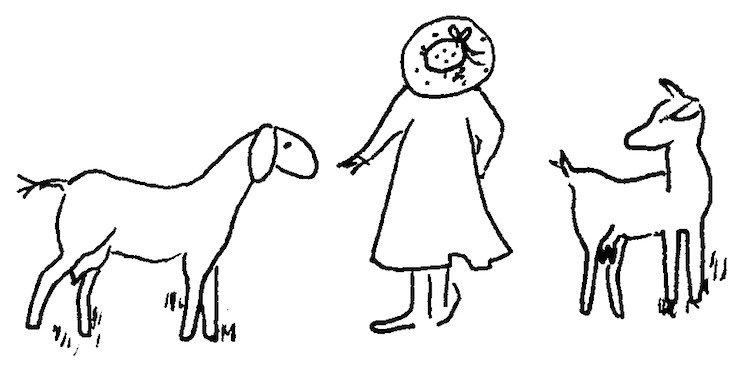
In this blog series intern Briana finds artisan cheesemakers from six regions around the country that represent our cheese nation. Venture along the ride as she goes coast to coast, discovering what makes the U.S. home to great artisan cheese. Read on and find out how you can win a subscription!
Southern Hospitality
Southern food is hot. Way up north in Boston, where the culture office is located, there are several popular southern restaurants. Who knew? It’s comfort food that always manages to bring people together. Currently, a trend among Southern chefs is going back to the roots of Southern cuisine to invent new dishes. Forgotten produce like rhubarb and turnips are popping up on menus and might even be considered cool. It’s all part of a scheme to get back to farm to table cooking that has swept the nation.
The South is also making waves in the cheese world. At this year’s Cheesemonger Invitational in New York City, the top three mongers crowned were from the South. Last year, ACS held its annual competition in Raleigh, North Carolina. Professor of food science at North Carolina State University, MaryAnne Drake, told Access Atlanta “the South is rising again in farmstead dairy.”
Speaking of the Old North State, its artisanal cheese is no flash in the pan. The newly established Western North Carolina Cheese Trail highlights ten artisanal and farmstead cheesemakers across the scenic region. With roughly 50 creameries statewide, artisanal cheese is becoming a common sight in North Carolina. Out of that, there are numerous goat farms.
Why so many goat dairies? For starters, the American Dairy Goat Association is headquartered in Spindale, NC, offering more resources and information to NC residents. Secondly, goats thrive in forested and hilly areas, and they are easy animal to start a creamery. Such was the motivation for one of North Carolina’s most known and beloved dairies, Goat Lady Dairy.
Back to the Land
Nestled in the Piedmont region lies Goat Lady Dairy, a bustling farm that happens to make award-winning farmstead goat cheese. It all started with one woman’s hope of returning to the land. The ‘Goat Lady’ Ginnie Tate bought an abandoned tobacco farm and 200 year old log house in 1984 and opened the dairy in 1995. She raised goats as a hobby and made cheese in her kitchen. She passed away in 2009, but her brother Steve and his wife Lee run the farm as if Ginnie was still there. Ginnie and Steve grew up on a corn farm in Illinois and Steve said he always had a longing to return to a rural life.
“We’re old hippies,” he tells me with a laugh. On 75 acres, the farm comprises the dairy, green pastures and a farm a mile from the dairy where they grow vegetables. They hold farm dinners once a month, a tradition started 18 years ago to allow folks to visit the farm and taste its bounty. To this day, “Dinner at the Dairy” is a constant sell out. They also have a CSA, serving 90 households in the Greensboro and Highpoint area.
A self-proclaimed “environmental activist,” Steve Tate is passionate not only about artisanal cheese but the environment. Their mission was always to increase awareness about the origins of our food. Making cheese, a sustainable agricultural product, happened to be a natural byproduct of all the goats they owned. Goats, said Steve, are “contagious and terminal.” No wonder goats’ offspring are called kids. At Goat Lady Dairy, they take cheese seriously. Their process is like any artisanal cheese. Although they recently moved their herd to nearby farms, their commitment to quality hasn’t gone away.
Recently, Goat Lady Dairy underwent changes in the hopes of expanding their production. This past winter they expanded their cheese room four times the size and moved their herd to nearby Lindale Organic Dairy. They now receive milk from three herds. Steve tells me the reason for the expansion was to supply the wholesale demand. Most dairies in the region only supply to local farmers markets and restaurants, but Goat Lady Dairy is looking beyond North Carolina. Steve hopes they can hire more people so he and his wife can retire, but he acknowledges that the move from a farmstead dairy is a bit of a downside.
“A perfect cheesemakers’ situation would be having the milk directly from the goats to the vat,” said Steve.
Yet since the expansion, the cheese has become a hit outside North Carolina. Their Smoked Mountain logs are a hit at Saxelby Cheese shop in New York and have sold to Picholine restaurant and Eataly. Steve also tells me that they shipped their cheese to St. James Cheese Co. in New Orleans, where the winner of the Cheesemonger Invitational hales from.
At this year’s ACS competition, they tied for 3rd place in the open Goat’s Milk Cheeses category for their fresh chèvre, one of only two North Carolina dairies to be awarded. But it’s their Smokey Mountain cheese that’s getting all the attention.
Smoke + Cheese
The idea for their famous Smokey Mountain Round came from a desire to combine the flavors of BBQ with cheese.
“We thought it would be great to combine the two and make a cheese different from the usual firmer textured smoked cheeses like gouda and cheddar, “ said Steve. After experimenting with several different types of wood including walnut, pecan, and pear wood, they finally found the perfect one: apple wood. Coupled with an abundance of apple trees in their neighborhood and the sweet flavor of apple wood, the cheese is a hit, winning first place in the open-smoked category at ACS last year.
“We want you to taste the cheese first and then enjoy a smoky kick at the end,” Steve tells me.
Goat Lady Dairy makes an array of fresh and aged cheese. A culture favorite was Sandy Creek, a bloomy rind cheese with a thin layer of ash running through it. The motto of Goat Lady Dairy is about changing people’s relationship to their food. Through their cheese, farm dinners, and CSA, they connect people to the land. And they plan on being here for a long time. They placed the farm under conservation easement to prevent any future development.
We need more people like the Tates’ who are committed to the environment and good food. Here’s hoping that farm to table continues to grow.






